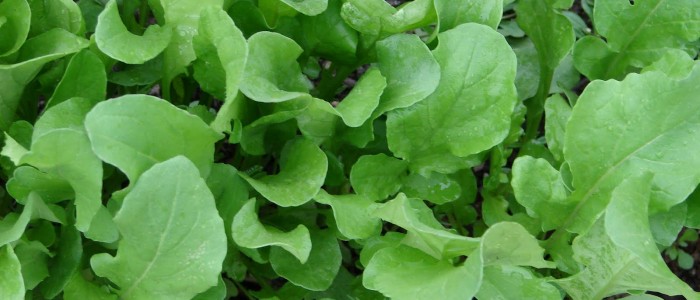-
 Turf Grass Seed Bluegrass, Bentgrass, Ryegrass, Fescues...
Turf Grass Seed Bluegrass, Bentgrass, Ryegrass, Fescues...
-
 Forage Seed Bromes, Clovers, Fescue, Wheatgrass, Legumes
Forage Seed Bromes, Clovers, Fescue, Wheatgrass, Legumes
-
 Grains Wheat Grain, Rye Grain
Grains Wheat Grain, Rye Grain
-
 Cover Crop Seed Buckwheat, Clover, Peas, Ryegrain
Cover Crop Seed Buckwheat, Clover, Peas, Ryegrain
-
 Wildflower Seed Mixtures, Singles, Annual, Perennial
Wildflower Seed Mixtures, Singles, Annual, Perennial
-
 Sprouting Seeds Fully certified Non-GMO Organic seeds for sprouts or microgreens
Sprouting Seeds Fully certified Non-GMO Organic seeds for sprouts or microgreens
Arugula Non-GMO Sprouting Seeds
Arugula is a type of mustard that is edible as seeds, sprouts or microgreens. Packed with nutrition and anti-oxident rich, Arugula is one of the easiest sprouts to grow. It has a mild peppery flavor and bright green tender leaves. Great in salads, on pizza, sandwiches or cooked.
Seeding Rate:
Indoor: 3-5 seeds/ per inch
Outdoor: 250 seeds/ per 4 feet
How to Grow: All varieties prefer well-drained soil that is rich in organic matter. Using a 10” x 20” tray filled with 2” of moist soil, spread 1oz. of seeds evenly across the soil. Cover tray and store for 72 hours at 70°F – misting lightly every 24 hours. Sprouts will emerge in 3 to 4 days. Uncover and place in well-lit area. Harvest as microgreens when plants reach 3” tall and produce open leaves. Cut with scissors at approx. 1/4 inch above the soil. Leaves can be stored dry in an aired container in the refrigerator for up to one week. Wash lightly and dry just before eating.
Note: Arugula sprouts are milder in taste than the leaves. The seeds can also be ground and used as a spice. Great for use as cover crops as well.
Nutritional Value: Sprouting seeds are richer in protein, folate, magnesium, phosphorus, manganese and vitamins C and K than un-sprouted plants. The vitamin and mineral content varies based on the variety of the sprouting seeds. Sprouts offer a powerful source of vitamins, minerals, antioxidants, and enzymes that fight free radicals because sprouting can increase their potency by 20 times or more.

